Welcome to Kairat Almaty: the Champions League's easternmost fixture
As Central Asia prepares to be represented at the World Cup for the first time by Uzbekistan, FFT visited the region to witness a European match near the Chinese border
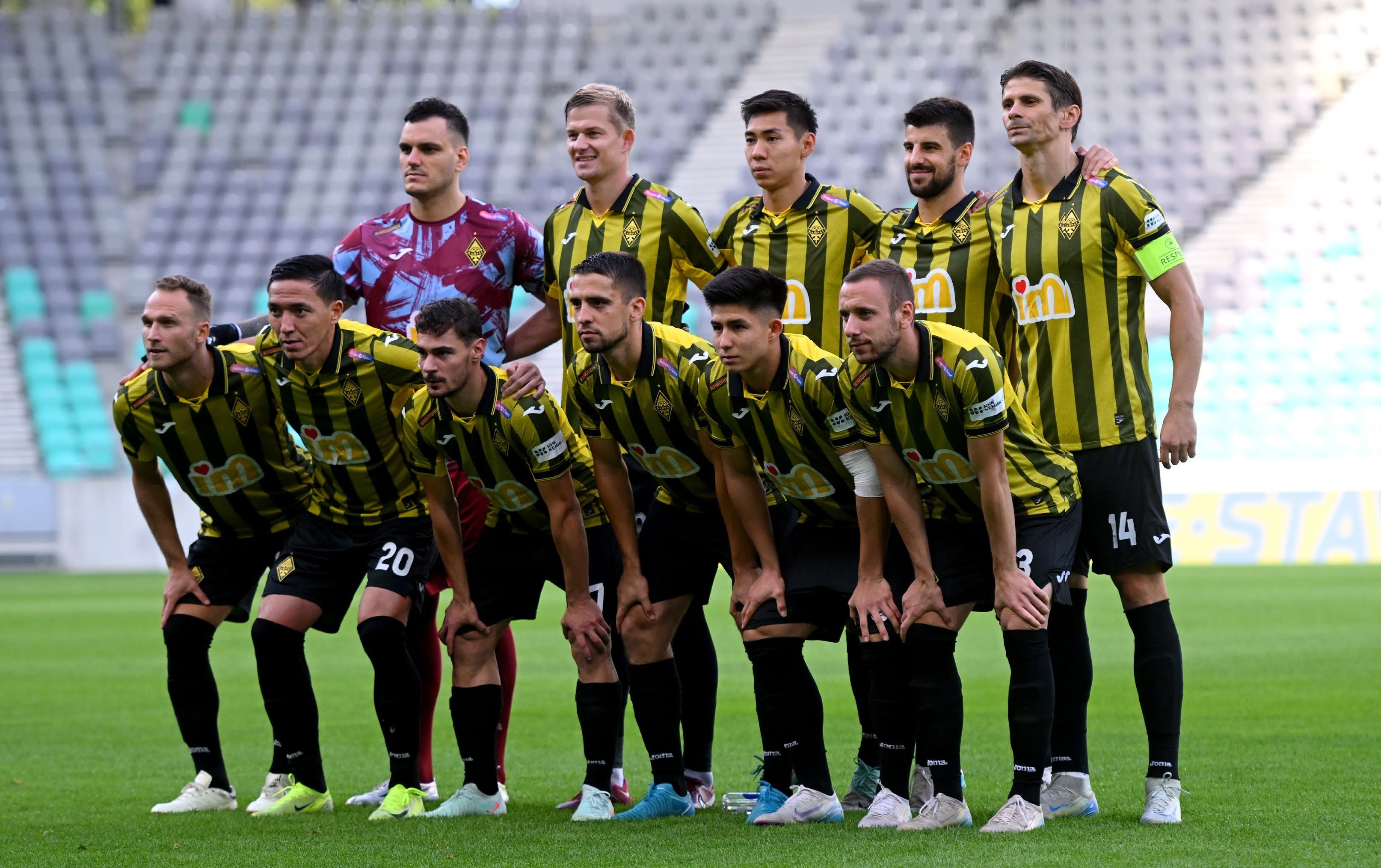
The best features, fun and footballing quizzes, straight to your inbox every week.
You are now subscribed
Your newsletter sign-up was successful
Want to add more newsletters?

Five times a week
FourFourTwo Daily
Fantastic football content straight to your inbox! From the latest transfer news, quizzes, videos, features and interviews with the biggest names in the game, plus lots more.

Once a week
...And it’s LIVE!
Sign up to our FREE live football newsletter, tracking all of the biggest games available to watch on the device of your choice. Never miss a kick-off!
Join the club
Get full access to premium articles, exclusive features and a growing list of member rewards.
Tehran, Kabul, Lahore and Mumbai. At this moment, FourFourTwo is further east than all four of them, as we wander around the perimeter of Kairat Almaty’s Central Stadium, ahead of the club’s Champions League qualifying tie against Olimpija Ljubljana.
We are in Kazakhstan’s largest city, just 200 miles from the Chinese border, with the Trans-Ili Alatau mountains looming large over us, the beginning of highlands that sweep all the way south and across to the mighty Himalayas.
No UEFA fixture will be staged further east this season, and only two more eastern clubs have hosted a game in the entire history of major European competition – fellow Kazakhs Irtysh Pavlodar, who haven’t qualified since 2018, and Russians Sibir Novosibirsk, who had a lone foray into the Europa League’s preliminary rounds in 2010.
Welcome to Stan Land
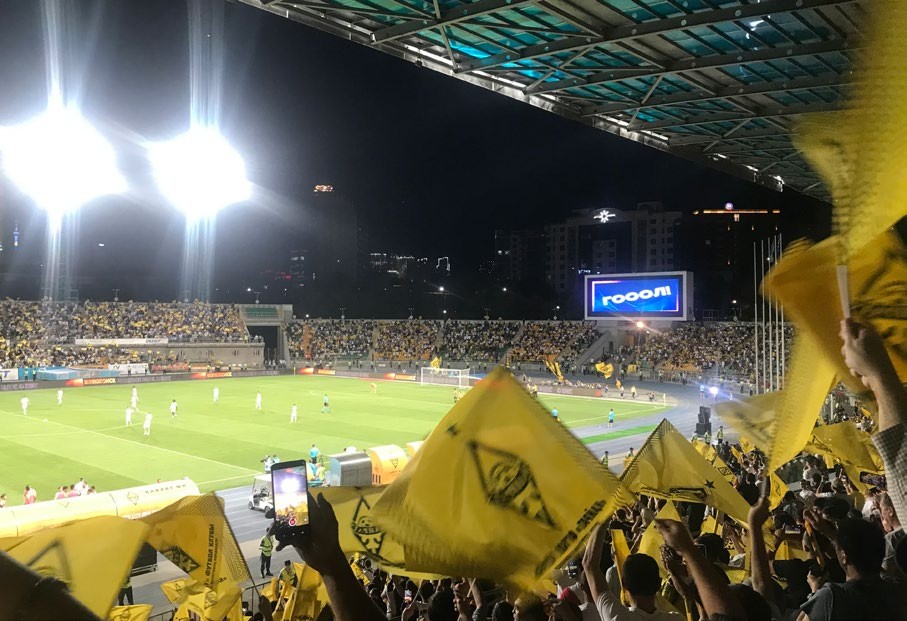
UEFA’s westernmost venue this season is 5,000 miles away – Santa Clara, who have been taking part in Conference League qualifying, are from the Azores.
Kazakhstan weren’t part of UEFA until 2002 – like fellow Central Asian nations Uzbekistan, Kyrgyzstan, Tajikistan and Turkmenistan, they joined the Asian Football Confederation following the dissolution of the Soviet Union in 1991, before switching to face more prestigious opposition.
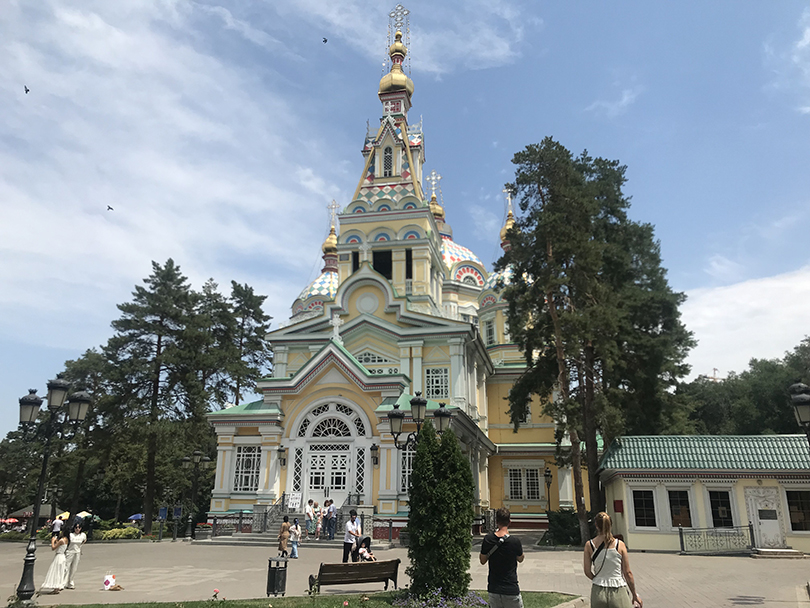
A small part of north-west Kazakhstan is indeed in Europe, but it’s a 33-hour road trip from where we are, in the south-east of the country.
FFT’s 3,500-mile journey from London has taken 12 hours by air, inclusive of a three-hour layover in Istanbul, before an onward flight that threaded between the no-fly zones of Russia and Iran, passing over Azerbaijan and then the Caspian Sea, before heading over the barren desert of Turkmenistan and Uzbekistan, returning to UEFA territory nearly two hours further north east.
Kazakhstan is Central Asia’s biggest country, and the globe’s ninth largest.
Its 20 million population, however, is around half that of Uzbekistan, which was the region’s leading football nation even before their neighbours’ switch to UEFA, and this summer qualified for the 2026 World Cup.
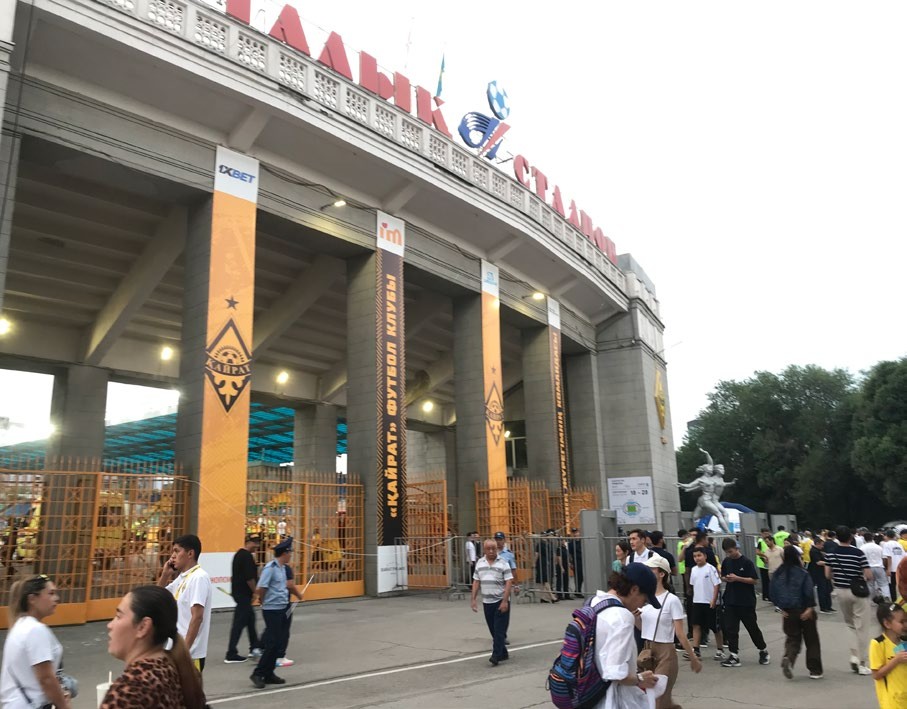
Central Asia has never previously had a representative at the tournament, but it’s obvious when we arrive at Almaty’s Central Stadium that there’s no lack of passion for football in a region that’s more known for combat sports, such as boxing.
Tonight’s fixture is a 22,000 sell-out – thankfully, we had secured a seat online in advance.
One problem, though: we were asked to supply a phone number so they could send us our ticket via SMS, although the website only accepted Kazakh phone numbers.
Funnily enough, FFT doesn’t have one – resulting in an awkward conversation at the gate as we explain that we don’t have an SMS barcode.
Their English isn’t fluent and our Kazakh is non-existent – thankfully, they want to help and they find a way to let us in, with the help of a staff member’s iPad.
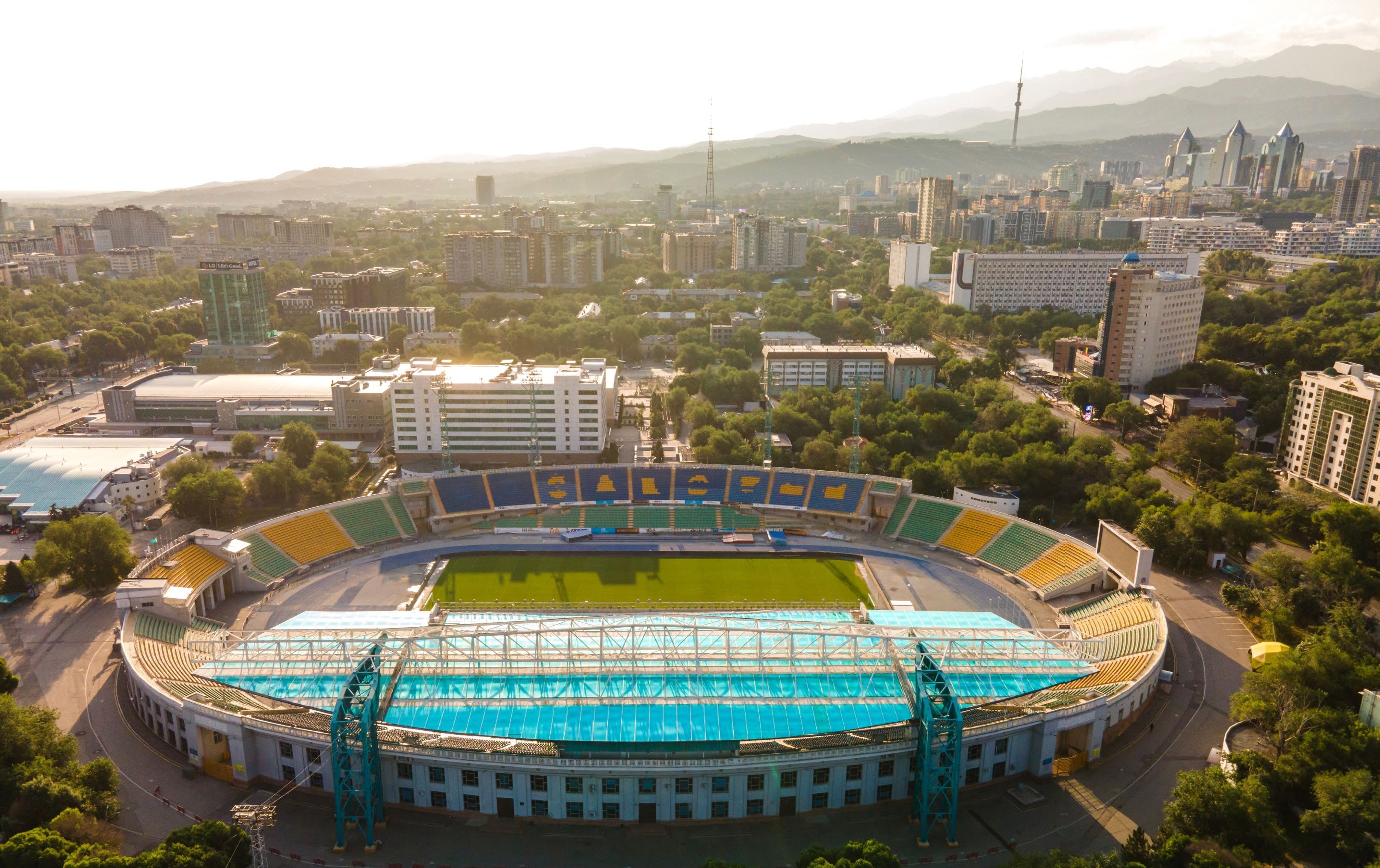
The atmosphere inside is vibrant. After walking past a row of intimidating army trucks, we find Kairat’s two mascots – an eagle and a snow leopard, of course – entertaining kids from a stage.
Further on, people are queuing to have their picture taken alongside the Champions League trophy.
We doubt it’s the same one that was handed to PSG in May.
This region rarely makes the global news, and is still shaking off the Borat stereotypes, but Almaty isn’t dissimilar to many a post-Soviet city, with wide boulevards and street signs in Russian, which is widely spoken here.
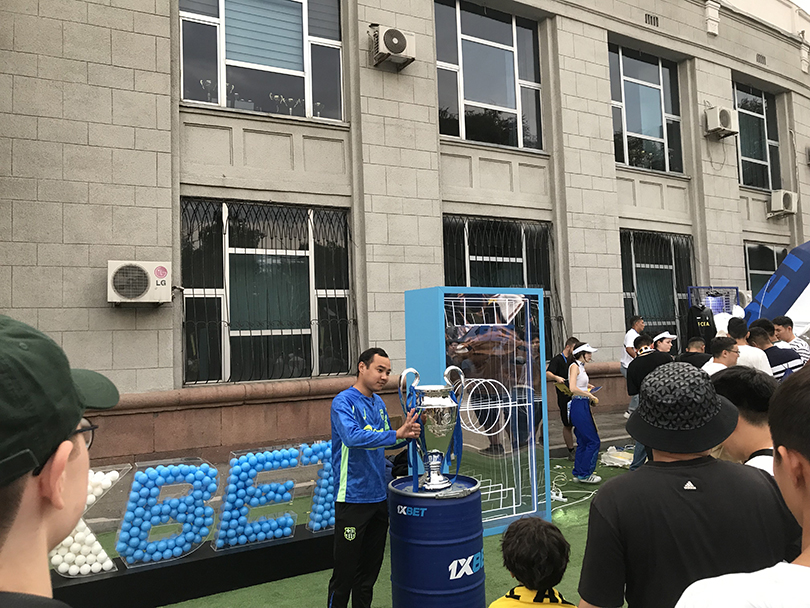
Home to more than two million, it used to be Kazakhstan’s capital, before the smaller Astana took the honour in 1997.
Today it reached 34 degrees, and the heat has got to some, with FFT earlier witnessing a punch-up between two locals jostling to get on a cable car to a tourist spot.
The nearby mountains are a product of tectonic activity. “Are the buildings here built to withstand earthquakes?” we hear someone ask. “The older ones, yes,” comes the slightly worrying reply – our hotel was built more recently.
England won 4-0 here in a World Cup qualifier in 2009, while Chelsea visited last November for a Conference League fixture against Astana, whose own stadium in the north of the country was being renovated.
The best features, fun and footballing quizzes, straight to your inbox every week.
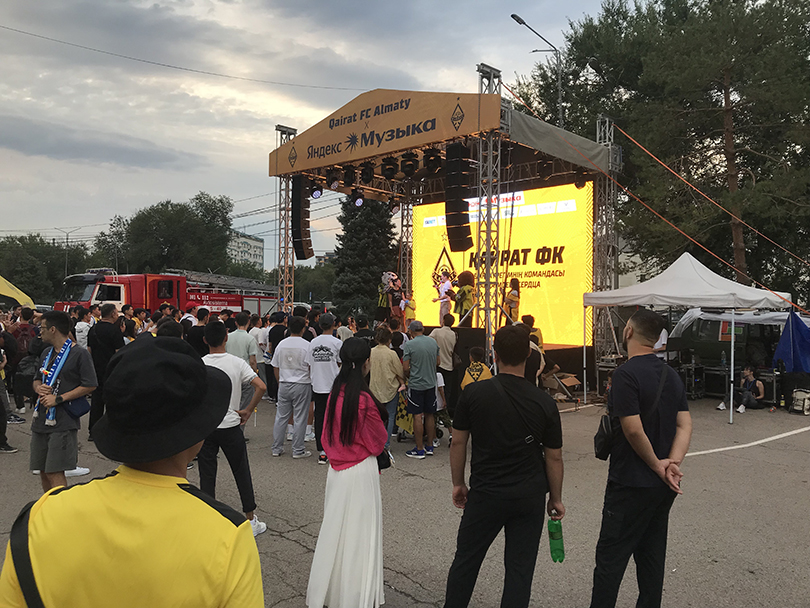
Enzo Maresca’s side triumphed 3-1 in temperatures of -10C.
Almaty is about as far as it’s possible to get from the sea, anywhere on Earth, so the differences between winter and summer climate are extreme.
Thanks to Borat, there’s a tendency in Western Europe to characterise Central Asia as a backward region, but that’s not the impression we have got during our visit
While Kazakhstan have never been anywhere near qualifying for a World Cup, Astana did reach the Champions League group stage in 2015, drawing all three home matches against Benfica, Atletico Madrid and Galatasaray, but they lost to TNS last autumn.
Their decline opened the door for Kairat to win the domestic league last season and return to the Champions League qualifying rounds for the first time since 2021, when they won at home to Maccabi Haifa and Red Star Belgrade, in front of smaller crowds as the world emerged from COVID.
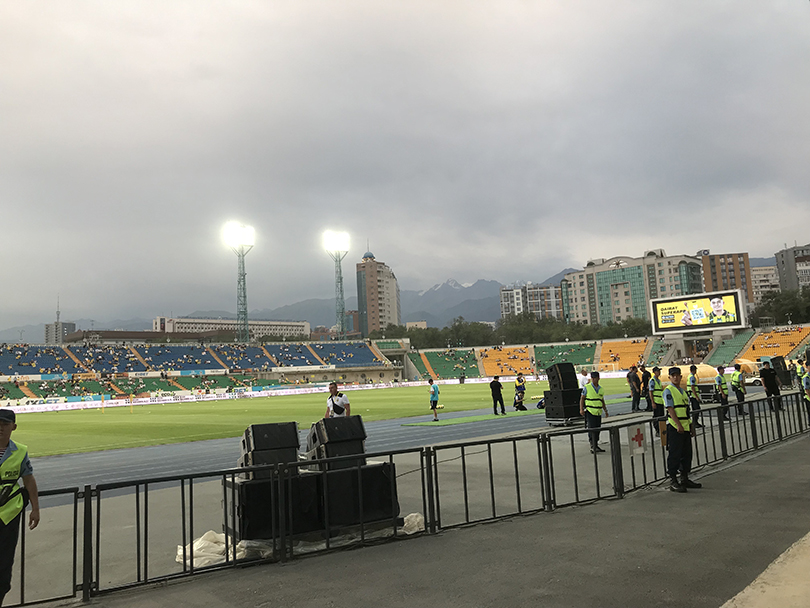
They go into tonight’s game with a 100 per cent record in Champions League home matches – their only previous appearance saw them win the home leg against Slovakians Artmedia in 2005.
Given the distance involved, travelling here isn’t easy for anyone.
As we take our seat, we spot a man with a Kairat shirt bearing the name of Andrey Arshavin – the former Arsenal man is probably the highest profile player ever to represent the club, during a spell at the end of his career.
Another chap is brandishing a Maribor scarf – they’re the Slovenian rivals of tonight’s visitors Olimpija Ljubljana. Odd.
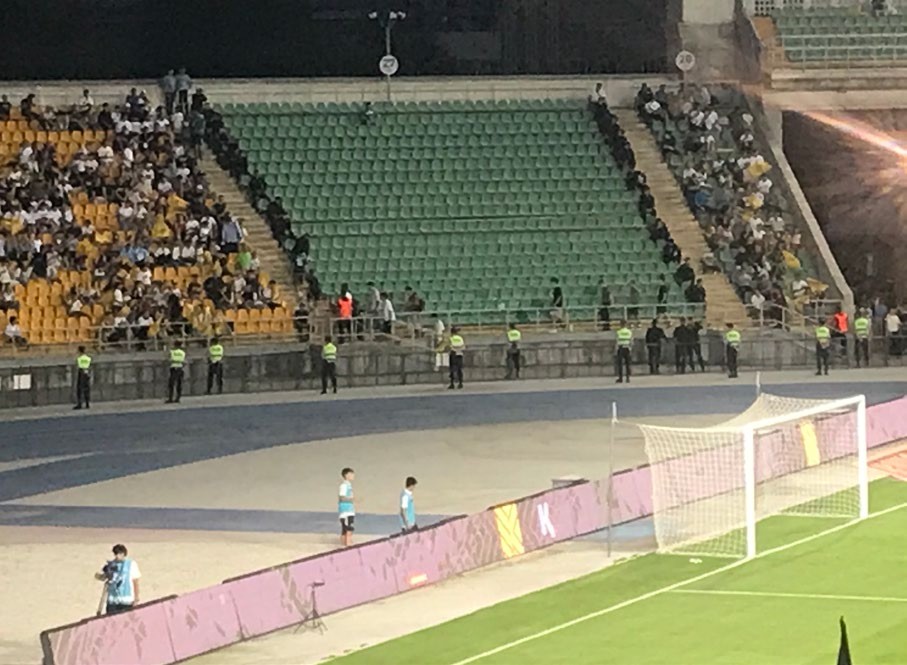
The away section consists of one block of seats, flanked by a row of around 20 policemen on either side – the 40 of them are guarding precisely one sensible-looking Olimpija fan, sitting on his own after being the lone person mad enough to make the trip over from Central Europe.
Police soon realise that the chances of aggro are nil and they let Kairat fans join him in the away section.
It’s summer and not yet 8pm, but Almaty’s position in the east of a time zone means the light is already fading, the mountains disappearing into the darkness at one end of the stadium, which only has a roof in the main stand.
Two hype men on the running track are whipping up the crowd, bellowing “Vperyod, Kairat!” (“Forward, Kairat!”) into microphones, with a drummer also getting into his pre-match rhythm.
Flags have been handed out with the words ‘Kairat FC, the team of my heart’, and thousands wave them enthusiastically all around the ground as the two sides emerge. It’s an impressive sight.
The atmosphere becomes raucous – Olimpija players are booed with every touch, and the visitors look overawed by the experience
As the line-ups are announced, there’s a huge cheer for 16-year-old forward Dastan Satpaev, who starts tonight and has already agreed to join Chelsea as soon as he reaches his 18th birthday.
Satpaev’s goal earned a 1-1 draw in Slovenia, so this second leg is a chance for Kairat to move closer to the league stage of the Champions League, or go far enough to drop into the league phase of the Europa or Conference League, keeping them in Europe at least until December.
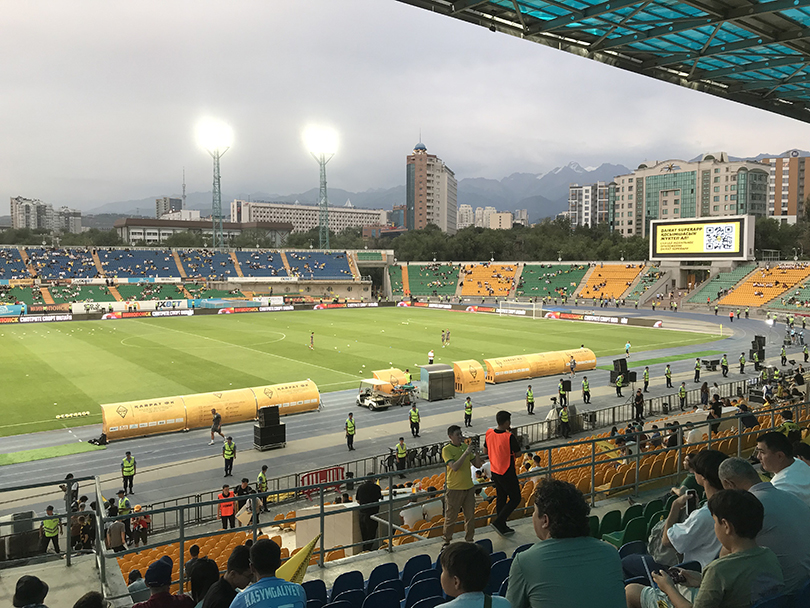
They’re ahead in five minutes, as Portuguese star Jorginho heads goalward and Olimpija keeper Gal Lubej Fink somehow fails to save it, sparking jubilant scenes, as ‘Goooool!’ is emblazoned in Cyrillic on the big screen.
The atmosphere becomes raucous – Olimpija players are booed with every touch, and the visitors look overawed by the experience.
They were seeded in this tie, but their league season hasn’t yet started, while Kairat are midway through a domestic campaign that runs from March to October.
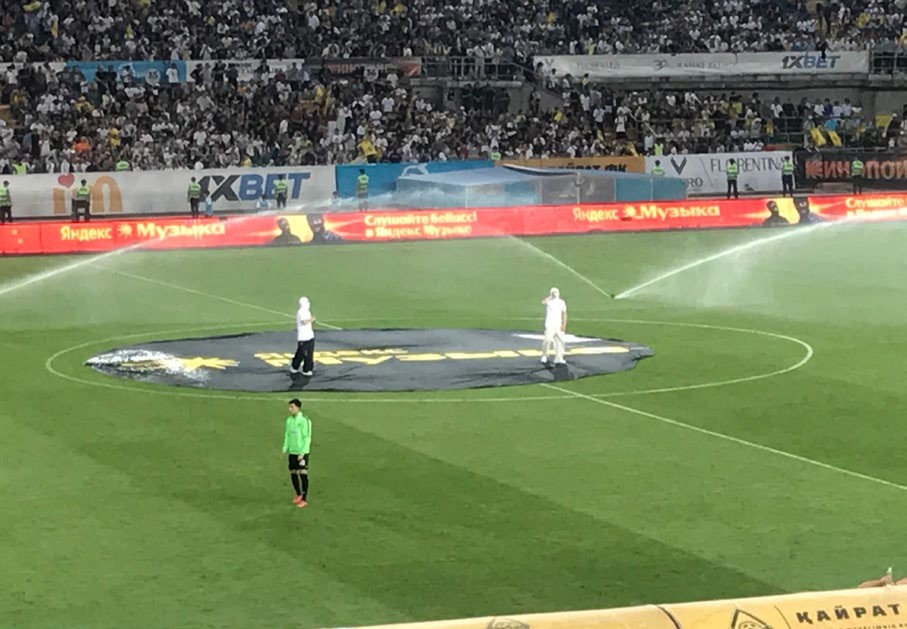
Half an hour in, after Kairat fans blow horns and enjoy a few Mexican waves, their mood improves even further as Aleksandr Mrynskiy fires in a second.
The lone Olimpija supporter is sat disconsolately, arms folded, probably wondering why he came all this way.
The interval offers entertainment from two balaclava-wearing rappers in the centre circle, like a Kazakh Kneecap but without the controversy, then a plague of locusts descends in the second half, attracted by the floodlights.
Full-time is greeted by another sea of waving flags, before a jubilant teenager invades the pitch with his. He’s rugby-tackled by security, who frogmarch him off and don’t even let him keep the flag.
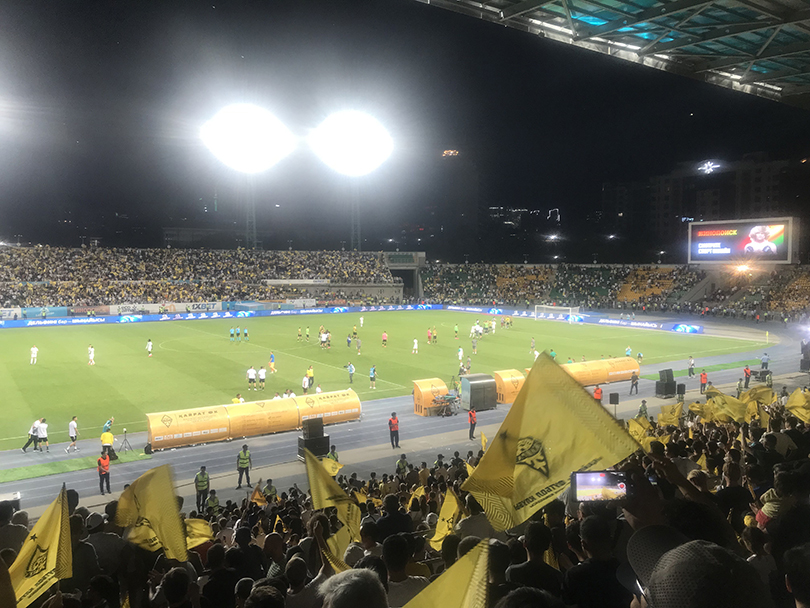
FFT heads for the nearby border to Kyrgyzstan, taking a four-hour bus to their capital, Bishkek, on the other side of the mountains.
It’s rush hour when we get there and rather chaotic, as we figure out how to get to the city centre from the bus station, inconveniently located several miles away. Having just arrived, we have no Kyrgyz currency and then a message on our phone informs us that data roaming isn’t available in this country, so no chance of accessing Google Maps.
We decide we will have to just jump on another bus and see if anyone asks us for money. They don’t.
The interval offers entertainment from two balaclava-wearing rappers in the centre circle, like a Kazakh Kneecap but without the controversy, then a plague of locusts descends in the second half, attracted by the floodlights
We’ve left UEFA territory – Kyrgyzstan were in Asian qualifying for the 2026 World Cup, doing reasonably but going out after Iran, Uzbekistan, UAE and Qatar were the top four in their group.
The day we visit, the 23,000-capacity national stadium is hosting the first game of an under-23 tournament – there’s no fee at all for admission, and we follow thousands of others heading inside, many picking up a free Kyrgyz national flag on the way in. We quickly get the sense this country is fiercely patriotic – Bishkek’s central square is dominated by an enormous Kyrgyz flag, flown from a 100m-high pole.
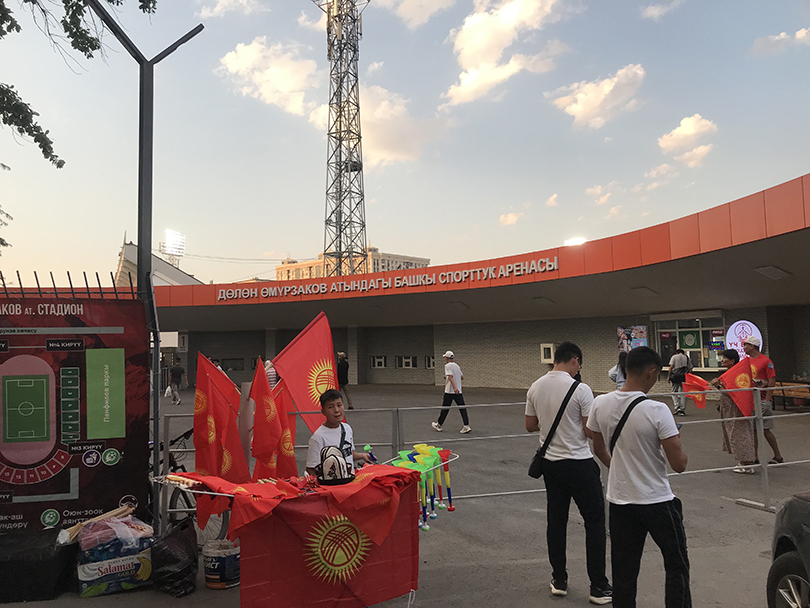
Inside the stadium, some are wearing traditional Ak-kalpak hats, although the thunderclap that fans embark upon is less authentic Kyrgyz and more nicked from Iceland.
There are a surprisingly large number of youngsters wearing Barcelona shirts with Lamine Yamal’s name on the back – the young winger is already famous everywhere.
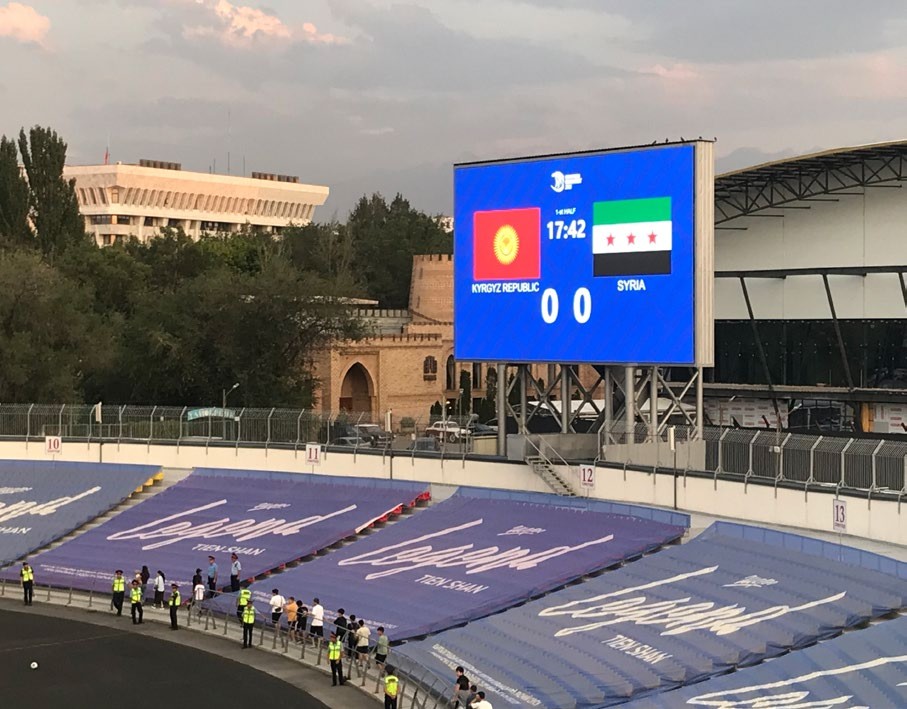
Ultras on the near side of the stadium chant and bang drums, but there is a collective groan from the crowd as Syria take the lead from a goalkeeping cock-up.
The visitors triumph 2-1, after a bizarre interlude when Kyrgyzstan’s goalie charges out of his area and then appears to flatten the Syrian striker a la Harald Schumacher, only for the Syrian to be shown a yellow card by the ref as he’s carried off on a stretcher.
Harsh.
Visa requirements mean that visiting Tajikistan and Turkmenistan is more complicated – the latter country is said to be run by one of the most repressive totalitarian regimes on Earth, and was the country where new club FK Arkadag were formed in 2023 by the country’s former president, quickly signed up most of Turkmenistan’s best players, then clinched the domestic league in each of their first two campaigns by winning every single match.
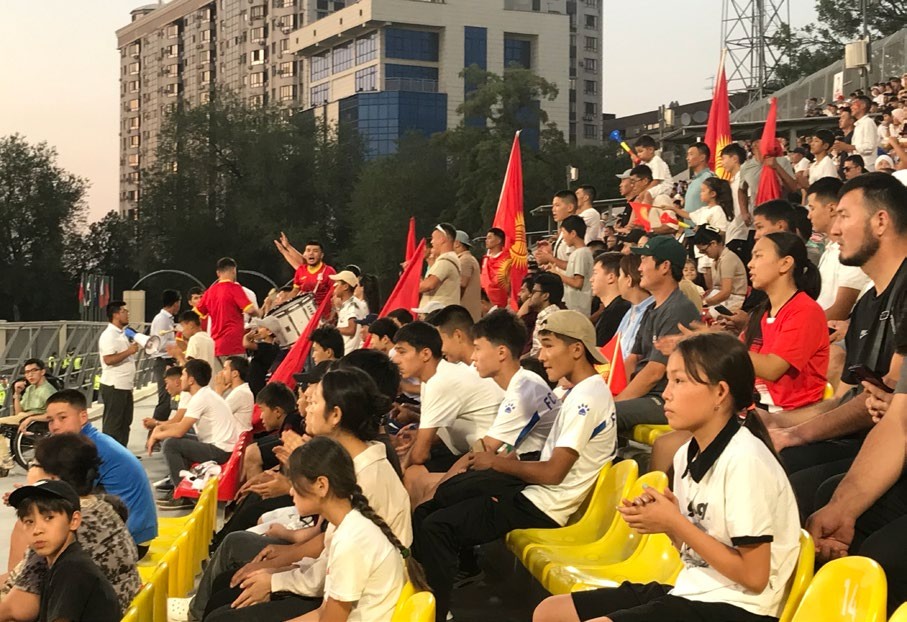
Midway through this year, they had a 100 per cent record once more – 68 league games played so far, 68 games won.
Instead, FFT make our way home via the visa-free Uzbekistan, shaking off the 41-degree heat in Tashkent to visit the state-of-the-art national stadium, with a capacity of 34,000, which would not look out of place in a European capital.
Opened in 2012, it’s also the home of Bunyodkor, who once boasted both Luiz Felipe Scolari as boss and Rivaldo as star player.
Oil and gas resources here make Uzbekistan the richest of the Central Asian nations, although Bunyodkor’s big-spending days are at an end. They finished 10th in the league last term.
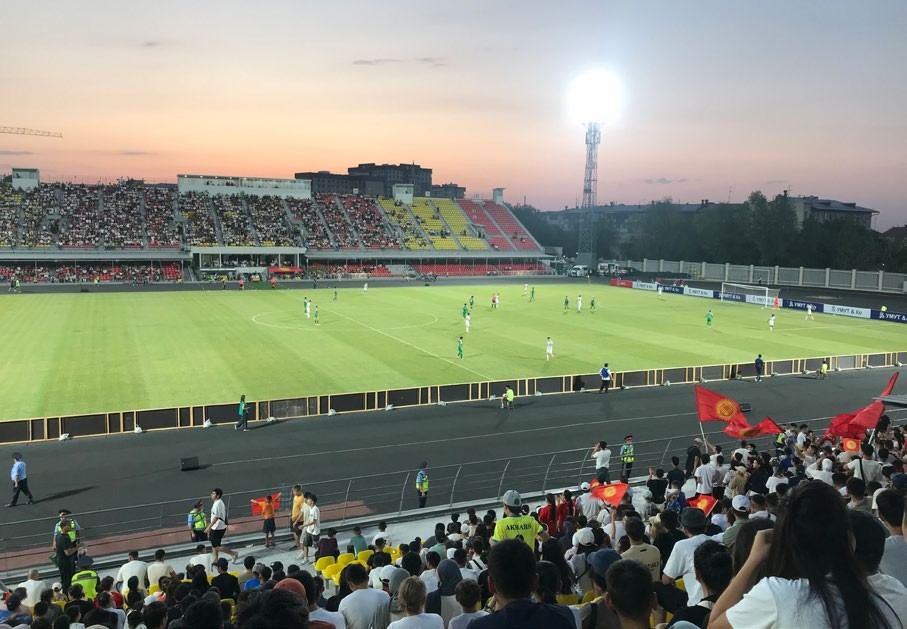
Manchester City recruit Abdukodir Khusanov emerged through the club’s youth system and recently helped his country reach the World Cup, thanks to a defence that didn’t concede a goal in five qualifiers on home soil during the decisive group stage.
Uzbekistan had already been close to making the World Cup in both 2014 and 2018, and are beneficiaries of an expanded 48-team tournament giving Asia extra spots.
As the temperature cools on a pleasant evening, we walk over to the Uzbekistan FA’s facility in the centre of Tashkent, and see hundreds of youngsters taking part in organised training sessions.
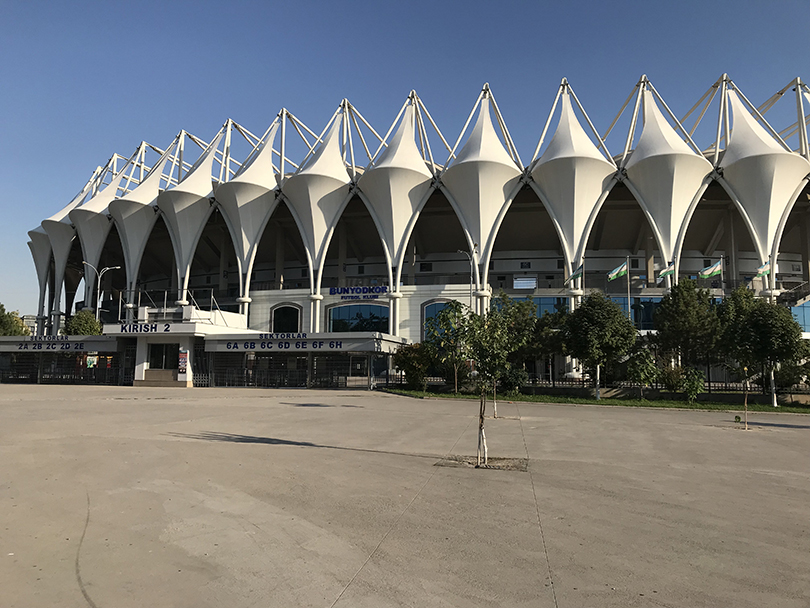
Thanks to Borat, there’s a tendency in Western Europe to characterise Central Asia as a backward region, but that’s not the impression we have got during our visit.
These are countries that love football and are ambitious to make an impact on the continental and global stage.
Several respected European nations won’t be at the World Cup, but Uzbekistan will, and the team will be determined to make the country proud.
Next up for FourFourTwo, though, is the gruelling nine-hour journey home.

Chris joined FourFourTwo in 2015 and has reported from more than 20 countries, in places as varied as Ivory Coast and the Arctic Circle. He's interviewed Pele, Zlatan and Santa Claus (it's a long story), as well as covering the World Cup, AFCON and the Clasico. He previously spent 10 years as a newspaper journalist, and completed the 92 in 2017.
You must confirm your public display name before commenting
Please logout and then login again, you will then be prompted to enter your display name.
 Join The Club
Join The Club










